Specific English. Грамматические трудности перевода - [38]
I. Переведите следующие предложения на русский язык, обращая особое внимание на перевод выделенных слов.
1. She wanted him to give up air traffic control; to quit, and choose some other occupation while some of his youth and most of his health remained. 2, The whole of Hungary was occupied by fascists. 3. That was the last he had seen of Golz with his strange white face that never tanned. 4. Robert Jordan registered that he was not taking any of the flattery. 5. Elsie, flushed with pride, happiness, and the sweet champagne, and already looking more of a Dulver, was compelled to respond. 6. It would not help the situation any. 7. It wasn’t much of a note to mark the end of eighteen years of marriage. 8. And if I so much as mention Ashley’s name, he cocks his eyebrow up and smiles that nasty, knowing smile! 9. Something of the chief’s contained anger, and a hint of authority, made the lieutenant hesitate. 10. I didn’t think you were much of a one for the old ladies. 11. Having had enough of London for a while, I set off for Tyrol. 12. We saw a lot of one another that year. 13. For the second time in this room tonight he exhibited nothing of kindness. 14. He was too busy to leave Chicago much. 15. Anyhow I’ve never minded if people thought me a bit of a fool. 16. «Well, what’s the news?» «Oh, he’s dead.» «I thought as much.» 17. It would be absurd for him to marry so much beneath him. 18. But you know, I’m not much of a one for believing in miracles. 19. No one could be more of a stranger to her than Ashenden. 20. Peewee has hardly so much as mentioned you. 21. Fanny Peronett was dead. That much her husband Hugh Peronett was certain of as he stood in the rain beside the grave. 22. Mrs Linsell showed all that was possible of her very pretty legs. 23. He felt that he could not go on being polite to her any longer and if the doctor’s remedy did not help, one day he would forget himself and give her, not a piece, but the whole of his mind. 24. I’m a bit of a reader myself. 25. It gave me something of a shock to realise that in England far, far the greater number of these men would have suffered capital punishment. I dare say you see a good deal of my daughter-in-law. June had hardly been at home at all that week; she had given him nothing of her company for a long time past. 28. To old Jolyon it seemed that his son had grown. «More of a man altogether,«was his comment.
II. Замените выделенные слова данными в скобках словами, используя предлог of.
1. I think we shall often see one another in the future. (a great deal) 2. I don’t like it at all. (any) 3. I want to know you better. (more) 4. She looked into the pleading brown eyes and did not see the beauty of a shy boy’s first love. (none) 5. There are some who’d say it isn’t a suitable pastime for a grown man. (much) 6. «A small fellow – too delicate for rough me,«he said. (a little bit) 7. Here he was, taking her out, kissing her good night, seeing her often and then not seeing her at all. (a lot) 8. Keith and Vernon saw each other rarely. (little) 9. «Not a strong animal, is it?» grinned Rhett. «Looks like he’ll die in the shafts.» (much) 10. Vernon Demerest was enjoying his passive role tonight – having someone else do almost the entire work, yet not relinquishing his own authority at all. (most, none) 11. A part of the hostility directed at Mel earlier was now being transferred towards the lawyer. (some)
III. Переведите на английский язык, используя для перевода выделенных слов конструкцию с of.
1. Мне это совсем не нравится. 2. Мы часто виделись в прошлом году. 3. Так я и думала! 4. Это нам совсем не поможет. 5. Он был против нашего плана и так и сказал. 6. Это дело займет большую часть завтрашнего дня. 7. Стоит мне только намекнуть на это, как он хмурится и выходит из комнаты. 8. Она была так расстроена, что совсем не замечала красоты летнего утра. 9. Не больно-то роскошный подарок! 10. Возможно, она все-таки виделась с ним иногда. 11. Долли была неважной портнихой (seamstress).
IV. Определите синтаксическую функцию сочетаний like this, like that в следующих предложениях. Переведите их на русский язык.
1. You mustn’t go about looking like this. 2. You can’t stay indoors on a day like this. 3. I saw some delightful boxes of beauty aids in one of the shops last week. Lip-stick, face powder, a small mirror, things like that. 4. You oughtn’t to behave like this. 5. I’m sorry to see you like this. 6. «It’s not the Ritz,«he said, «but at this hour of the night it’s only in a place like this that we stand a chance of getting something to eat.» 7. What have I got to offer a girl like that? 8. And to think that after all the trouble he’s given me he had to end up like that. 9. He had seen his son like that before.
V. Переведите следующие предложения с герундием или отглагольным существительным.
1. Randall was not surprised at seeing Emma. 2. All the same he was deeply grateful to Ann, grateful to her for having insisted on having Fanny at Grayhallock, for having insisted on nursing Fanny. 3. I hope Randall won’t mind our deciding things without him. 4. «I suppose he hasn’t changed his view about coming to Seton Blaise?» said Hugh. 5. She stopped her folding and went on. 6. Since his arrival in April he had been simply hanging round the house, helping Ann with the washing up, running errands for whoever was looking after Fanny. 7. I had approved of Verena hiring her. 8. But it was an unpleasant, even distinctly alarming, prospect and he had put off doing so. 9. In the last few years he had taken to spending more and more time in London… 10. Hugh had avoided speaking seriously to his son about his treatment on Ann. 11. Mildred, with her long tolerance of Humphrey and her skill in defending him, was surely not a censorious woman. 12. This falling in love was, he felt, the best thing he had ever done. 13. Emma joined with Randall in flattering Lindsay, and with Lindsay in teasing Randall. 14. Your asking me to come to India put me, in a way, up against it. 15. He hated our finding her there. 16. I should swallow him without his even noticing it. 17. She denied having written anything of the sort. 18. Do think seriously about coming to Seton. 19. He feared and detested the idea of Emma’s visiting Grayhallock in his absence or indeed at all. 20. She never became resigned to not winning. 21. Instead of struggling one against the other, instead of avoiding, they should unite. 22. Her face was agreeable without being handsome. 23. The previous autumn, after having been left back in the eighth grade three years running, Mule had joined the Navy. 24. He just couldn’t tolerate always being left behind in the eighth grade, him getting so tall and the other children so little. 25. Pretending an interest gave me sufficiently private opportunity for sizing Holly’s friends.
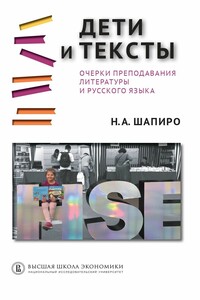
Книга посвящена изучению словесности в школе и основана на личном педагогическом опыте автора. В ней представлены наблюдения и размышления о том, как дети читают стихи и прозу, конкретные методические разработки, рассказы о реальных уроках и о том, как можно заниматься с детьми литературой во внеурочное время. Один раздел посвящен тому, как учить школьников создавать собственные тексты. Издание адресовано прежде всего учителям русского языка и литературы и студентам педагогических вузов, но может быть интересно также родителям школьников и всем любителям словесности. В формате PDF A4 сохранен издательский макет.
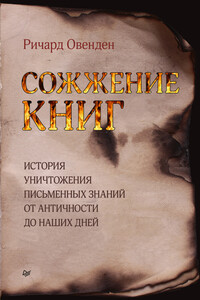
На протяжении всей своей истории люди не только создавали книги, но и уничтожали их. Полная история уничтожения письменных знаний от Античности до наших дней – в глубоком исследовании британского литературоведа и библиотекаря Ричарда Овендена.
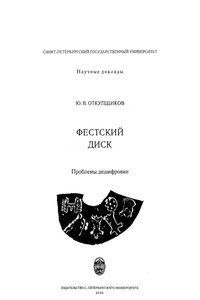
Данная публикация посвящена трудному и запутанному вопросу по дешифровке таинственного памятника древней письменности — глиняного диска, покрытого с обеих сторон надписью из штампованных фигурок, расположенных по спирали. Диск был найден в 1908 г. на Крите при раскопках на месте древнего Феста. Было предпринято большое количество «чтений» этого памятника, но ни одно из них до сих пор не принято в науке, хотя литература по этому вопросу необозрима.Для специалистов по истории древнего мира, по дешифровке древних письменностей и для всех интересующихся проблемами дешифровки памятников письменности.
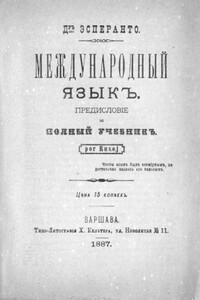
Книга послужила импульсом к возникновению такого социального феномена, как движение сторонников языка эсперанто, которое продолжает развиваться во всём мире уже на протяжении более ста лет.

В книге рассказывается история главного героя, который сталкивается с различными проблемами и препятствиями на протяжении всего своего путешествия. По пути он встречает множество второстепенных персонажей, которые играют важные роли в истории. Благодаря опыту главного героя книга исследует такие темы, как любовь, потеря, надежда и стойкость. По мере того, как главный герой преодолевает свои трудности, он усваивает ценные уроки жизни и растет как личность.
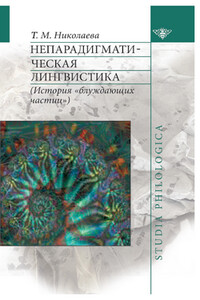
Данная монография посвящена ранее не описанному в языкознании полностью пласту языка – партикулам. В первом параграфе книги («Некоторые вводные соображения») подчеркивается принципиальное отличие партикул от того, что принято называть частицами. Автор выявляет причины отталкивания традиционной лингвистики от этого языкового пласта. Демонстрируется роль партикул при формировании индоевропейских парадигм. Показано также, что на более ранних этапах существования у славянских языков совпадений значительно больше.